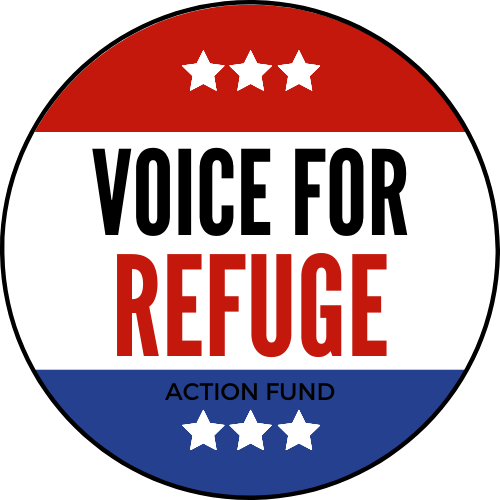1. Integrate Immigrants and Refugees into Healthcare Fields
- In the immediate term, states should issue executive orders (EOs) to allow internationally-trained doctors and healthcare workers to practice in the state, similar to (and potentially broader than) the EO issued in New Jersey.
- States should streamline re-licensing for immigrants, refugees, and individuals with out-of-state (including international) medical and certain healthcare-based certifications. These professionals should have the same workplace rights and be employed under the same conditions as U.S. citizen professionals.
- States should develop standardized assessment and certification programs to assess clinical readiness as part of the licensure process.
- States should create competency-based apprenticeship and pre-apprenticeship programs, as well as work-based learning models, for healthcare professions.
- States should invest in career guidance and support services for internationally trained healthcare professionals seeking to gain licensure and enter the U.S. health workforce, as well as assistance in accessing non-licensed health occupations that leverage their training and skills (Welcome Back Centers based at community-based organizations and higher education institutions around the country are a useful service model).
- States should help internationally trained health professionals find long-term pathways to permanent licensure, recognition of their service provided, and assistance in reentering the workforce at the end of the COVID crisis.
- States should fund dedicated residency spots for international medical graduates in their states, to address the barriers international medical graduates face in obtaining the residency placements required for licensing.
- States should provide conditional licenses for internationally trained nurses whose credentials are recognized by CGFNS International (nursing credentials evaluation) and who are participating in bridge programming to complete gaps in training and clinical requirements.
- States should convene a task force of representatives from health systems, higher education, nonprofit organizations, government, and internationally trained health professionals to examine barriers facing internationally trained health professionals seeking to enter the health sector and issue relevant findings and recommendations.
- Additional background information and recommendations can be found here, here, and here.
2. Protect Our Neighbors from Deportation and Family Separation
- Everyone in our community needs to feel safe and able to seek emergency assistance. Governors should announce that they will suspend or supersede municipal or anti-“sanctuary city” laws in order to reassure all residents that they can access aid without fear of penalties – and do everything in their power to see immigration enforcement honor sensitive locations policies.
- To promote community trust and health, local and state governments should suspend all voluntary local collaboration with the Department of Homeland Security (DHS), including 287(g) agreements, administrative warrants, ICE detainers, workplace raids, and any other collaboration related to civil immigration law.
- Many of our family members are being held in local jails and immigrant detention centers, where they are unsafe and lack adequate care. States and local authorities should release individuals who pose no harm to others from our jails and detention centers, including those detained on civil immigration charges, in order to prevent outbreaks in confined facilities.
- States must develop proactive plans for prevention and management of COVID-19 for people in detention. Here is a template letter to local jail, prison, and detention center administrators.
- States should invest in immigration legal services funding and coordinate directly with non-profit immigrant serving organizations to ensure immigration attorneys are able to represent immigrants who continue to be subject to cruel federal immigration enforcement.
- Governors should establish executive-level offices where all foreign-born people (regardless of status) can report their experiences, and seek assistance via referral to appropriate government and NGO agencies. These offices should be charged with collecting gender-segregated data.
3. Ensure All Community Members Have the Information they Need in the Language We Speak
- All COVID-19 resources or emergency communications must be provided in the multiple languages, including any guidance on how to access essential services, such as unemployment assistance, food stamps, cash assistance. Translations should be based on the primary and emerging languages according to neighborhood demographics. Resources and emergency communications should be disseminated through channels that will reach impacted communities.
- All COVID-19 health care services, including hotlines, must be provided with access to interpreters who provide services in person, over the phone or by video. The availability of these language capabilities should be widely advertised and health institutions should provide an “interpretation graphic” to visually inform residents when interpretation/translation is available upon request.
- States should coordinate with refugee- and immigrant-serving organizations to ensure that critical information is disseminated widely and reaches all communities.
- Refugees and immigrants need assistance to address distance learning challenges, including digital literacy, language accessibility, etc.
4. Provide Full and Equitable Access to Healthcare for All
- States should ensure minimal burdens to testing and treatment to the public, including undocumented immigrants. Burdens to be addressed should include monetary charges for services, language barriers, concern about impact on visibility and social benefits, and lack of neighborhood access, among others. Guidance should specifically prohibit eligibility questions and/or other requirements to access relief or emergency social services and support.
- States should provide universal COVID-19 testing, treatment, and services — free of charge and without asking for or recording immigration status. For example, New York State announced guidance that ensures all low-income residents, regardless of immigration status, have access to COVID-19 testing, evaluation, and treatment.
- States and municipalities must make outreach efforts to bring free and accessible health-care services to immigrant communities.
- Immigrant communities may fear government agencies and places that are meant to keep them safe. Government agencies and health institutions must strengthen policies to ensure that access to care cannot result in immigration consequences, and should publicize these changes to reassure immigrants that testing and treatment is safe.
- State should perform public outreach to ensure all immigrant neighbors know they can seek medical care without fear, and ensure that any medical care received will not become part of a later public charge analysis.
5. Provide Robust Economic Relief to All Working Families and Small Businesses
- Economic relief measures – including food stamps, rent and housing assistance, unemployment benefits, cash assistance, and paid leave – must be universally accessible regardless of immigration status and without triggering any immigration penalties.
- States should make unemployment-eligibility determinations on the widest basis possible. States should ensure that all workers impacted by the economic crisis have access to economic relief, including non-traditional employees like independent contractors, self-employed people, DACA & TPS recipients, seasonal laborers, and ITIN holders.
- States should issue a moratorium on evictions and utilities shut-offs for the duration of the economic crisis. States and municipalities with budget capacity should consider universal programs of rental support and/or rent relief, such as those announced by Minneapolis and Chicago.
- States should issue a moratorium on state tax and debt collection, providing grants and no-interest loans to small businesses, as well as relaxing documentation requirements and ensuring language assistance is provided.
- Relief for small businesses must include immigrant owned businesses and ensure that documentation requirements are relaxed and language assistance provided.
- States should uphold workers’ rights, workplace safety, and hazard pay.
Calling all Refugees and Immigrant Health Professionals
Register your interest in helping with the COVID-19 emergency response: Refugees.Rescue.org
We are pleased to announce a new website to enable refugees and immigrants to express their interest in mobilizing as part of the COVID-19 emergency response. It is more critical today than ever before to have enough qualified professionals to meet the growing demands the pandemic is placing on our health systems. With the current COVID-19 crisis, there will likely be opportunities to deploy refugees and immigrants living in the US who are trained medical and health professionals but are not credentialed in the US.
In the interest of immediately supporting this opportunity, the IRC is launching a new website Refugees.Rescue.org to enable refugees and immigrants in the US to self-register to express their interest in volunteering and/or working on the COVID response – as part of their local community or in another location. The self-registration asks a number of questions relating to the health background of the applicants as well as their English level, current location, and availability to travel. After submission of the self-registration, there is a link to the Medical Reserve Corps as another option to pursue. In case you missed it, Migration Policy Institute (MPI) did a timely piece on Immigrant Professionals being an untapped resource.
Local Government Funding to Support Refugee Communities
In order to see change, the community must get involved. This can be done by paying attention to what is happening in your local communities and local government. In Arizona, the City of Phoenix was awarded $293 million dollars in federal relief funds under the CARES Act. The city allocated $3 million dollars of the funding to refugee and asylee communities, broken down in the following way:
- $1.7 million emergency rent and utility assistance
- $1 million in RFP for RA’s, ECBO’s and other refugee serving orgs ($50K per agency)
- $300K for small refugee owned businesses ($5K one time grants)
To achieve this success, organizers started closely following virtual city council meetings, trained others how to utilize the “request to speak” system (including refugees and refugee serving orgs), created allies or champions with the city council (in Phoenix, those champions included Councilman Carlos Garcia & Vice Mayor Betty Guardado), and utilized the We Are All America-Arizona coalition to mobilize, strategize and maintain ongoing communication. WAAA-AZ mobilized community members including: immigrants’ rights groups, refugees impacted by COVID-19 and refugee leaders, faith organizations, resettlement sites and other direct service providers, and the broader community to drive out action.
Action items included: speaking at every single council meeting, leaving public comments, training 2-3 refugees to share their stories (provided coaching prior to council meetings), and making calls to the city of Phoenix council and mayor’s office. Organizers also utilized the media to leverage and secure funds – and stayed involved throughout the entirety of the process, including providing input on how funds should be distributed.
To see if your locality received CARES Act payments, please click here. Click for contact information for mayors, county executives, city, county, and town officials, or other local elected leaders). Click here for guidance on how to prepare and organize meetings, and click here for guidance on how to prepare for virtual meetings.

